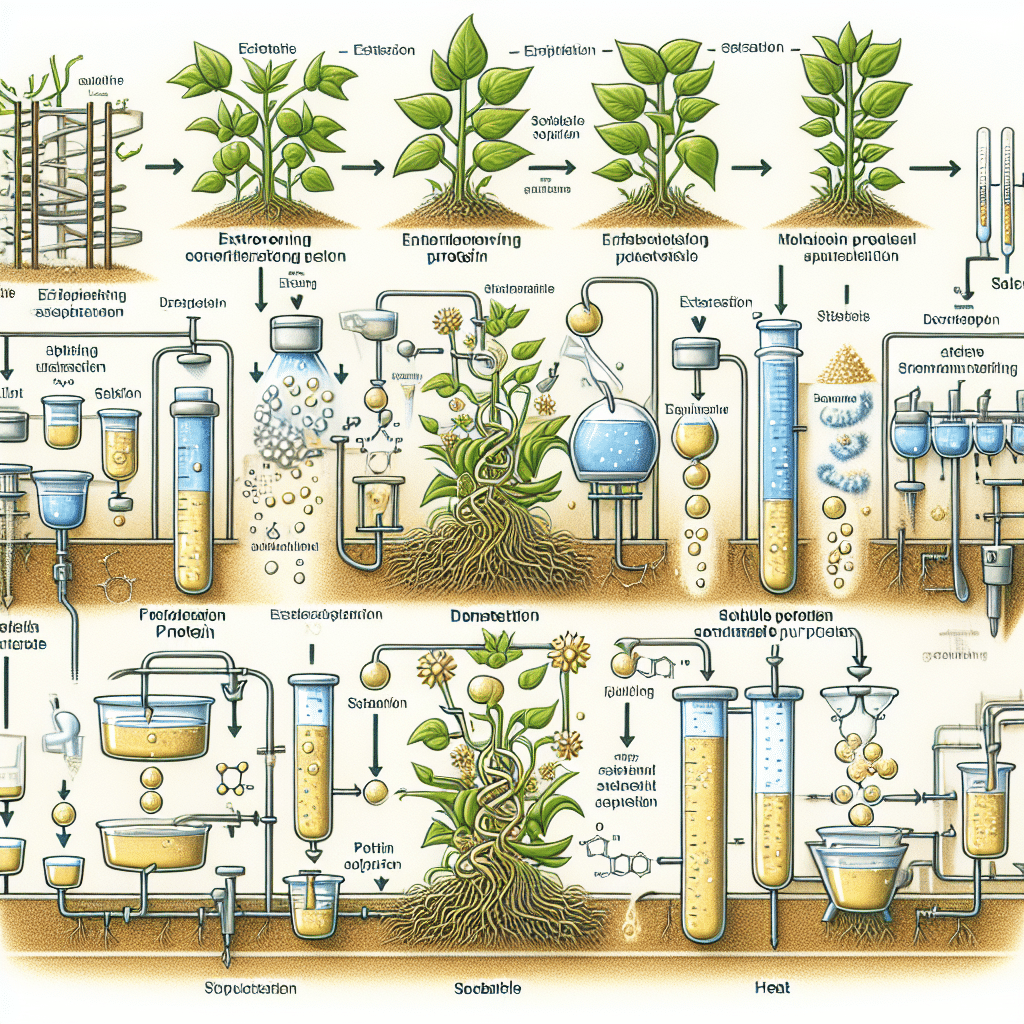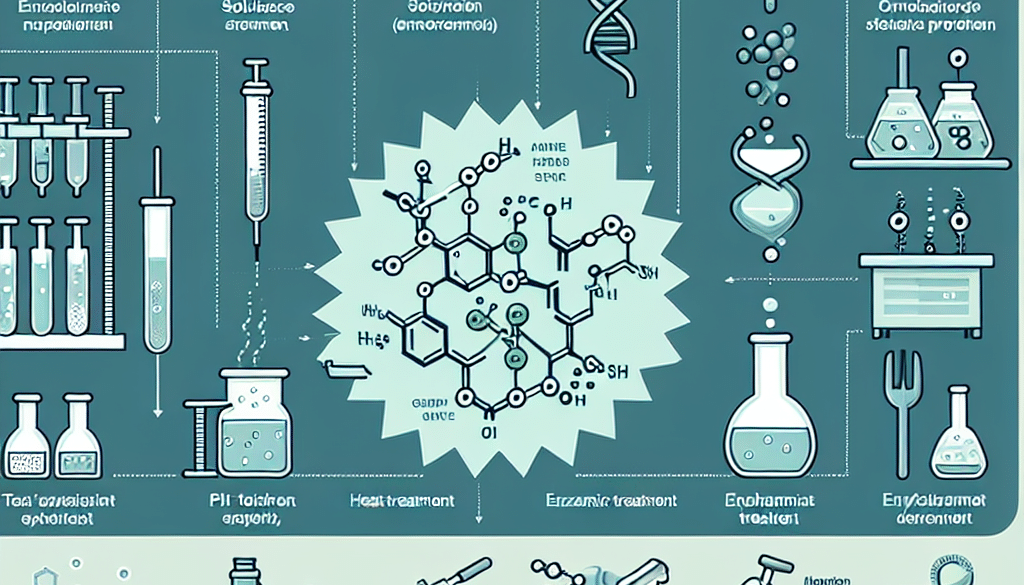Plant Protein Solubility Enhancements: Effective Strategies
-
Table of Contents
- Enhancing Plant Protein Solubility: Effective Strategies and Innovations
- Understanding Plant Protein Solubility
- Strategies for Improving Plant Protein Solubility
- Case Studies and Examples
- Statistics and Market Trends
- Conclusion: Key Takeaways for Enhanced Plant Protein Solubility
- Discover ETprotein’s High-Quality Plant Proteins
Enhancing Plant Protein Solubility: Effective Strategies and Innovations

As the demand for plant-based proteins continues to rise, the food industry is faced with the challenge of improving the solubility of these proteins to enhance their functionality and appeal. Solubility is a critical factor that affects the texture, taste, and overall quality of plant-based products. In this article, we will explore the various strategies and innovations that have been developed to enhance the solubility of plant proteins, providing valuable insights for manufacturers and consumers alike.
Understanding Plant Protein Solubility
Plant proteins, derived from sources such as peas, rice, and soy, are known for their health benefits and sustainability. However, they often exhibit poor solubility compared to animal proteins, which can lead to challenges in product formulation. Solubility is influenced by factors such as protein structure, pH, temperature, and the presence of other ingredients.
Strategies for Improving Plant Protein Solubility
Several techniques have been developed to enhance the solubility of plant proteins, making them more suitable for a variety of applications. Here are some of the most effective strategies:
- Physical Modification: Methods such as high-pressure homogenization, ultrasonication, and microfluidization can alter the physical structure of plant proteins, improving their solubility.
- Chemical Modification: Chemical treatments, including pH-shifting and the use of solubilizing agents, can enhance protein solubility by changing the protein’s charge and hydrophobicity.
- Enzymatic Hydrolysis: Enzymes can be used to break down protein molecules into smaller peptides, which typically have better solubility.
- Protein Blending: Combining different plant proteins can lead to synergistic effects that improve overall solubility.
Case Studies and Examples
Real-world applications of these strategies have demonstrated their effectiveness. For instance, pea protein solubility has been significantly increased through enzymatic hydrolysis, leading to smoother textures in plant-based beverages. Similarly, rice protein solubility has been enhanced through physical processing techniques, allowing for its use in a wider range of products.
Statistics and Market Trends
The global plant protein market is expected to grow significantly, with a projected compound annual growth rate (CAGR) of 7.2% from 2020 to 2027. This growth is partly due to technological advancements in protein solubility enhancement, which have expanded the range of possible applications for plant proteins.
Conclusion: Key Takeaways for Enhanced Plant Protein Solubility
In conclusion, improving the solubility of plant proteins is essential for the development of high-quality plant-based products. The strategies discussed in this article offer promising solutions to overcome solubility challenges. By adopting these techniques, manufacturers can create plant-based products that are not only nutritious and sustainable but also have the sensory attributes that consumers desire.
Discover ETprotein’s High-Quality Plant Proteins
If you’re looking for top-notch plant protein solutions, ETprotein offers a range of products that meet the highest standards of quality and solubility. Their portfolio includes organic rice protein, clear rice protein, pea protein, clear pea protein, and more, all characterized by a neutral taste and non-GMO, allergen-free attributes. Catering to various industries, ETprotein is your go-to source for plant proteins that can elevate your product offerings.
About ETprotein:
ETprotein, a reputable protein Chinese factory manufacturer and supplier, is renowned for producing, stocking, exporting, and delivering the highest quality organic bulk vegan protein and plant proteins. They include Organic rice protein, clear rice protein, pea protein, clear pea protein, pumpkin seed protein, sunflower seed protein, mung bean protein, peanut protein etc. Their offerings, characterized by a neutral taste, non-GMO, allergen-free attributes, cater to a diverse range of industries. They serve nutraceutical, pharmaceutical, cosmeceutical, veterinary, as well as food and beverage finished product distributors, traders, and manufacturers across Europe, USA, Canada, Australia, Thailand, Japan, Korea, Brazil, and Chile, among others.
ETprotein specialization includes exporting and delivering tailor-made protein powder and finished nutritional supplements. Their extensive product range covers sectors like Food and Beverage, Sports Nutrition, Weight Management, Dietary Supplements, Health and Wellness Products, and Infant Formula, ensuring comprehensive solutions to meet all your protein needs.
As a trusted company by leading global food and beverage brands and Fortune 500 companies, ETprotein reinforces China’s reputation in the global arena. For more information or to sample their products, please contact them and email sales(at)ETprotein.com today.












